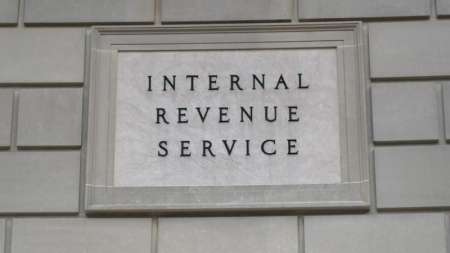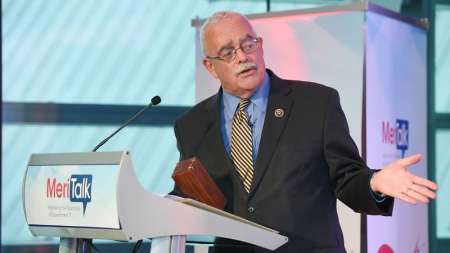The so-called “Big Beautiful Bill” that President Donald Trump signed into law on Friday instructs the IRS to deliver a report to Congress on how it could replace Direct File, the program that allows taxpayers to file their taxes for free directly with the IRS. […]
Both House and Senate lawmakers are looking to end the IRS’s Direct File program, which allows taxpayers to file their taxes for free directly with the agency. […]
A Federal watchdog said in a new report that the Internal Revenue Services (IRS) is falling short on overseeing its identity verification vendor’s use of artificial intelligence, even as it earns high marks for protecting taxpayer data. […]
Rep. Gerry Connolly, D-Va., the ranking member of the House Committee on Oversight and Government Reform, is calling for an investigation into what he says are “irresponsible” IT policies and the “abuse of Americans’ tax data” at the IRS by the Department of Government Efficiency (DOGE). […]
The IRS is coming under fire from two government watchdogs that say the agency needs stronger IT controls to safeguard taxpayer data, and that the agency misspent funds designated for business systems modernization. […]
The mass firings of IRS employees are putting at risk the agency’s ability to issue timely refunds and answer taxpayer questions – along with threatening to reverse recent upgrades to some of the agency’s antiquated technology – former IRS managers said on March 11. […]
Melanie Krause, who currently serves as chief operating officer at the Internal Revenue Service (IRS), has been named the tax agency’s commissioner – the title that heads the agency – on an acting basis. […]
Lawmakers and tax experts today emphasized the compelling need to upgrade outdated IT systems at the IRS and leverage emerging technologies like AI to enhance the taxpayer experience. […]
The Internal Revenue Service (IRS) has improved its electronic tax filing system but continues to slog through paper filings, the Government Accountability Office (GAO) found in a new report in which it told the tax agency that it needs to remove barriers for business owners to e-file their tax returns. […]
National Taxpayer Advocate Erin Collins said today in her 2024 Annual Report to Congress that the taxpayer experience “has noticeably improved” over that past year while also stressing the need for adequate funding for technology modernization at the IRS. […]
The Internal Revenue Service’s (IRS) Direct File pilot – a new online tax return filing service for individual taxpayers – was successful in its initial pilot in 2024 but should be expanded to improve equity and address challenges, the Government Accountability Office (GAO) said in a new report. […]
A group of House Republicans is asking President-elect Donald Trump to end the IRS’s Direct File program – which allows taxpayers to file their taxes for free directly with the agency – on day one of his new administration. […]
The Internal Revenue Service (IRS) announced Thursday that it reached a major milestone in fiscal year (FY) 2024 by resolving a longstanding significant deficiency in its information system controls 11 years after it was identified. […]
The Internal Revenue Service’s (IRS) watchdog found in a report out last week that the tax agency does not have “sufficient oversight” of the privacy and security of taxpayer data used in its Free File program. […]
The Internal Revenue Service (IRS) announced this week that its Direct File tool will be available in 12 additional states for the 2025 tax season, making the free e-filing service available in a total of 24 states. […]
The IRS is teaming up with state tax agencies and software and financial industries firms on a new initiative to combat steep upticks in fraudulent attacks on taxpayers and tax systems. […]
The Internal Revenue Service (IRS) isn’t adequately overseeing and managing the decommissioning of legacy systems, according to a recent report by the Treasury Inspector General for Tax Administration (TIGTA). […]
The Internal Revenue Service (IRS) wants to expand its use of authentication services that employ the Login.gov sign-on service developed by the General Services Administration (GSA), but the Treasury Inspector General for Tax Administration (TIGTA) said in a July 23 report that IRS is facing security hurdles in that process. […]
The IRS’s Direct File pilot program that the agency conducted earlier this year proves the value in prototyping products in the Federal government before they are fully scaled up, the project’s product lead said during the Biden-Harris President’s Management Agenda event on July 10. […]
IRS Chief Technology Officer (CTO) Kaschit Pandya said Tuesday that his agency interacts with more Americans than nearly any other public or private organization and is leveraging artificial intelligence (AI) to improve its customer experience. […]
The IRS’s National Taxpayer Advocate, Erin M. Collins, is calling on Congress to help reallocate certain funds from the IRS’s Inflation Reduction Act funding to assist in its modernization efforts. […]
A June 18 report from the Treasury Inspector General for Tax Administration (TIGTA) reckons that the IRS as of March had used about 10 percent of the approximately $57 billion in multi-year modernization funding that Congress has approved for the agency. […]
The U.S. Department of the Treasury and Internal Revenue Service (IRS) announced that the state of Oregon is the first to join up for the IRS Direct File program – which allows taxpayers to file their tax returns directly with the IRS online – for the 2025 tax filing season. […]
The online services director at the IRS this week mapped out key goals of the agency’s ongoing technology improvements plans that will roll out over the next three years. […]
The Government Accountability Office (GAO) is asking the IRS to take steps to document its use of AI technology in a new pilot the agency is taking to explore the “tax gap” – which represents the difference in the amount of taxes owed versus those collected. […]
Along with ongoing technology modernization efforts – which include implementation of artificial intelligence and cloud-based technologies to streamline operations – IRS Commissioner Danny Werfel said today that increasing the agency’s workforce to handle taxpayer demand remains a high priority. […]
After a successful year of piloting during the 2024 tax season, the IRS said today it is moving forward with making its Direct File program a permanent tool. […]
The IRS has announced the extension of its current Free File program through 2029 under an agreement with Free File, Inc. – a partnership between the agency and several tax preparation software firms – that provides free access to tax prep and online filing software. […]
IRS Commissioner Daniel Werfel wants to expand agency’s programs that allow taxpayers to file their tax returns with the government for free, following on the agency’s Free File and Direct File pilots. […]
The IRS is taking claim for a range of technology-driven customer service improvements over the past year, and pointing to future improvements it hopes to achieve, in an update to its strategic operating plan published on May 2. […]









